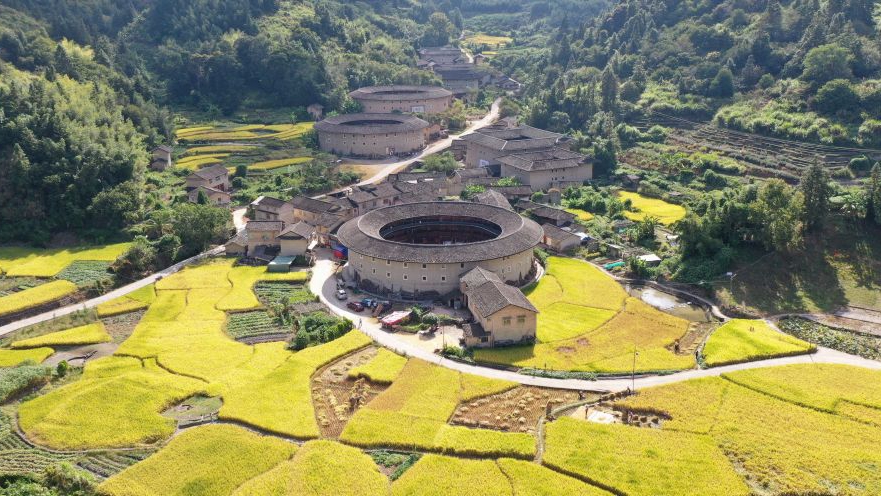Fruits from Xinjiang reach more consumers through Internet
Since the beginning of September, more than 15,000 mu (1,000 hectares) of grapevines in Manas county, Changji Hui Autonomous Prefecture of northwest China's Xinjiang Uygur Autonomous Region have entered the harvest season. The grapes are exclusively used for wine production.

A Uygur family harvests ripe grapes in Turpan, northwest China's Xinjiang Uygur Autonomous Region. (Photo/People's Daily Online)
"This year, I planted 190 mu of grapevines, and I've been reaping the fruits according to the degree of their maturity and the variety of the grapes. Now, it's the end of the harvest season," said a local grape grower named Fan Guangting.
Manas county, located at the northern slope of the Tianshan Mountains, has a history of growing grapes for wine production of over 30 years.
With new grape planting technologies now being widely used, Manas county has seen stable grape production, with the quality of the fruit continually increasing, explained Cheng Chifang, vice general manager of CITIC Guo'an Wine’s Xinjiang branch.
The grape planting area at the northern slope of the Tianshan Mountains has reached 116,000 mu and the annual wine production capacity in the region has reached 349,000 tonnes, accounting for 70 percent of Xinjiang's annual total wine production.
The total production of fruits in Xinjiang is expected to exceed 8.7 million tonnes this year.
Apples grown in Aksu Prefecture, Xinjiang, which are rich in sugars, are popular among consumers. Since the beginning of September, local farmers have been busy picking and selling apples.
"I've sold dozens of tonnes of apples grown by my family on livestreaming platforms during the past two years, and I also helped my neighbors sell their apples," said Wang Sanmei, an apple grower in Aksu city, adding that in the past, local apple growers waited for fruit dealers to purchase their fruits during the harvest seasons, and these days, they receive orders directly placed by consumers online.
In recent years, more and more fruit growers in Xinjiang have started to promote their fruits through livestreaming. A person in charge of e-commerce from the commerce bureau of Aksu city explained that there are over 8,000 e-commerce companies in the city.
By the end of September, about 150,000 tonnes of plums planted on 230,000 mu of farmland in Jiashi county, Kashgar Prefecture in Xinjiang had been sold.
"I planted 7 mu of plum trees and earned more than 130,000 yuan ($21,075) by selling the fruits," said a local farmer.
The total planting area of plums in Jiashi county has reached 450,000 mu. By engaging in plum planting, over 60,000 local households have managed to increase their incomes.
At the 7th China-Eurasia Expo held in Urumqi, capital of Xinjiang, in September, Jiashi plums gained widespread attention, with orders worth more than 100 million yuan signed during the event.
Photos
Related Stories
- Snow turns Duolang Canyon in China's Xinjiang into 'colorful oil painting'
- Xinjiang celebrates bumper harvest of chilli peppers
- Archer aims to promote traditional sport
- Global audiences are fed up with US-led West’s ‘show’ on human rights
- Xinjiang-related draft decision "intends to contain China": diplomat
- Attempts to use Xinjiang-related issues to keep China down will get nowhere: spokesperson
- Cotton harvest season starts in Xinjiang
- Desert highway under construction in Xinjiang
- Villagers havest tomatoes in Changji, China's Xinjiang
- In pics: 7th China-Eurasia Expo in Urumqi, China's Xinjiang
Copyright © 2022 People's Daily Online. All Rights Reserved.









